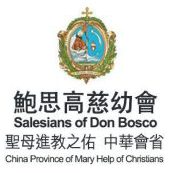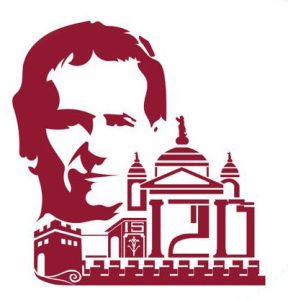【慈幼通訊社 ─ 2021 年04月 08 日意大利都靈訊】 ─ 假如方濟沙雷氏沒有這種行為與人品,鮑思高會想出他的預防教育法?為什麼這位青年人的聖者,會揀選沙雷氏作為神修的泉源,模造出他付出畢生精力服務的修會?更加根本的說法就是:「鮑思高是否真正的沙雷氏會士?」這些問題就是聖方濟沙雷氏思想一位最偉大權威,Gianni Ghiglione神父會回答的。
對Ghiglione神父來說,有一些用語具體地表達預防教育法──「我們需要贏得青年的心」;「如要有權威,先要被人所愛」;「讓我們培育良好公民與熱心教友」──即使這些用語是出自鮑思高的內心,但來自聖方濟沙雷氏的思想。
這些來源如沒有鮑思高的才智也是無用的,因為他能將這些直覺與創新的方法論,轉化為他服務青年,尤其是處於最「危險境地」的青年的基石。在當前的時刻,面對教育的急需時,能尋找這些來源及其到今日的延伸,是慈幼會會院內外,應負起的使命。
Ghiglione神父強調說:「聖方濟沙雷氏至今仍教導我們,兩項美妙而重要的事情。」
第一項是友誼意識:人們可從他的生平以及其書信中,清晰地看到很多線索。Ghiglione神父記起說:「當他完成在巴黎的學業後,與四位好同學,一同返回逾三百公里以外的阿納西(Annecy),沿路有時步行,有時騎馬,有時坐馬車,他與他們建立親密的友誼,顯然而見……他的文章及書信,充滿對友誼的考量與見證。」
他也是今天青年的典範。Ghiglione神父評論說:「人們傾向低頭看手機:其實他們的目光應該轉向別人,和別人有人際的交流。」
「第二項就是關注個人的個性。他不是天生的聖者:他曾有高傲的脾性,隨時針對和他意見不合的人。」這位富聖德的主教,其溫良的作風,並不是出自他本來的個性,而是透過努力學習而成。這就是自制──他堅持與人們建立關係,以及施行他的牧民職務──是他神修苦行的一部份。這是畢生的學習,但不是要抑制感受,卻是要將之轉化為對他人的同情。
慈幼精神就是這樣,而鮑思高神父將之變成一個持旗者,就是把聖方濟沙雷氏的名字,置於他修道「家庭」的徽號中。Ghiglione神父重申:「教育青年的計劃,就這樣以人所共知的理智、宗教、仁愛原則,漸漸地伸延到全世界每一個地方。」
最後,他滿意地總結說:「我們的教育法,來自遠方,並去到遠方。」
Don Bosco debtor of St. Francis de Sales: educational relevance of thought and example of saintly bishop of Geneva
(ANS – Italy–Turin, 08 April 2021) – Without the action and the person of Francis de Sales, would there ever have been the Don Bosco of the Preventive System? And why did the Saint of Youth choose him as a source of spirituality for the congregation he gave life to? Even more radically: “Was Don Bosco a true SALESian?” These questions were answered by Fr Gianni Ghiglione, one of the greatest connoisseurs of St. Francis de Sales’ thought.
For Fr Ghiglione some expressions that embody the Preventive System – “it is necessary to win the hearts of young people”; “To be authoritative you need to be loved”; “Let us form good Christians and upright citizens” – even if they spring from the heart of Don Bosco, they started from the mind of Saint Francis de Sales.
These roots take nothing away from the genius of Don Bosco, who was able to translate the intuitions and innovative methodologies making them the cornerstone of his service to young people, especially the most “at risk”. And when it is necessary, as in this time, to face the educational emergency, the search for those roots and their extension to the present is a commitment to be assumed in the Salesian house and beyond.
“Two beautiful and important things St. Francis de Sales can still teach us today,” Fr Ghiglione underlines.
The first is the sense of friendship: one finds ample traces of it in his biography and precise definitions in his letters. “When he finished his studies in Paris, his return to Annecy was a march of over 300 kilometers on foot, on horseback and in a carriage together with four of his fellow students with whom he evidently had a very close relationship … His writings, his letters are a mine of considerations and testimonies on friendship,” Fr Ghiglione recalls.
He is also a model for today’s young people: “They have a tendency to keep their eyes down, bent over their mobile phones: they should rather turn it to the gaze of others in an interpersonal exchange,” Fr Ghiglione recommends.
“The second thing is the care of one’s character. He was not born a saint: he had a proud temper, ready to take action against adverse people.” The mild manner commonly attributed to the holy Bishop was not an expression of his character, but of a committed education of this. Self-control – which he adhered to in his relationships with others and in carrying out his pastoral ministry – is part of his spiritual asceticism. It was a lifelong education not to the repression of feelings, but to their conversion in empathy towards others.
Salesianity is this, and Don Bosco made it a standard bearer by embedding the name of Francis de Sales in the shield of his religious ‘family’: “A project for the education of young people that has gradually extended to the whole world as it obviously is at every latitude, based on the well-known principles of loving-kindness, reason and religion,” Fr Ghiglione reaffirms.
Finally, he concludes with satisfaction: “Ours is a method that comes from afar and goes far!”



